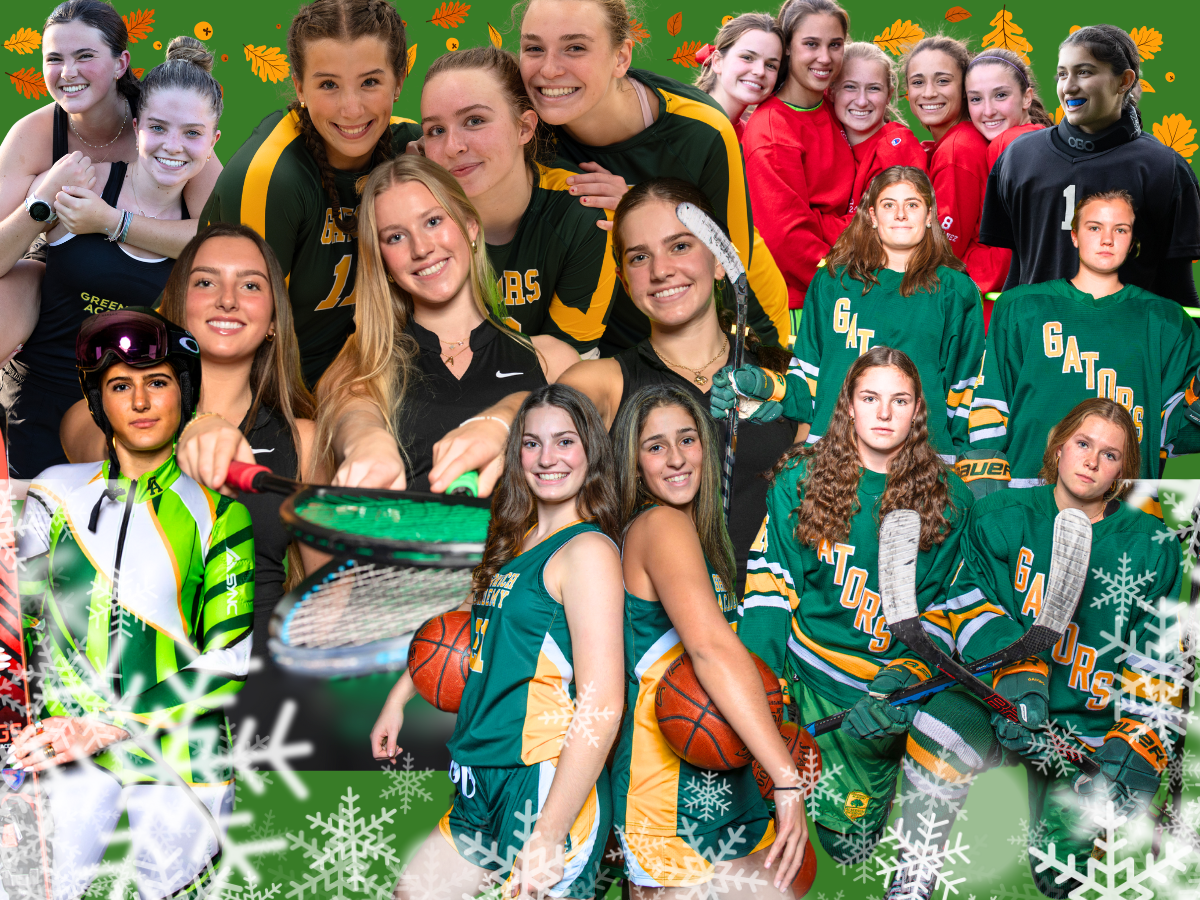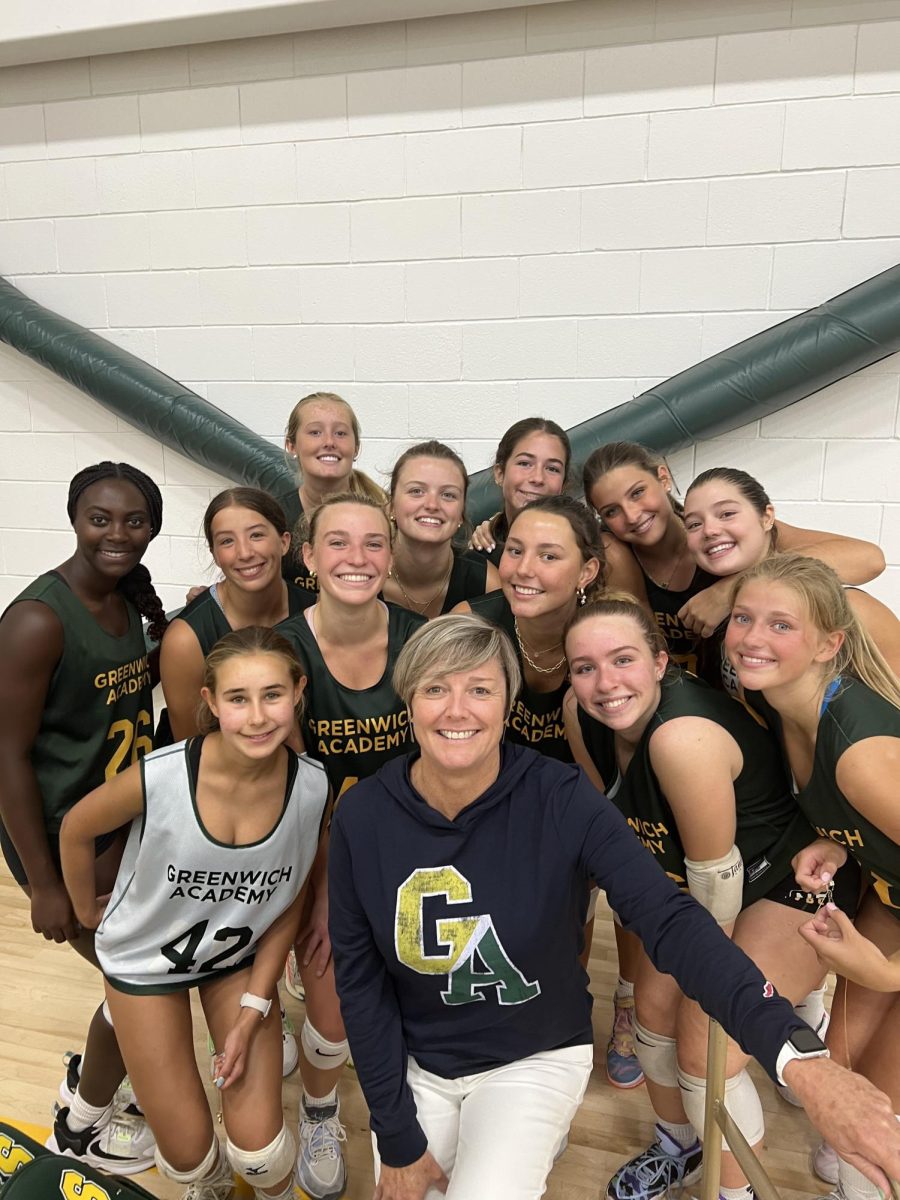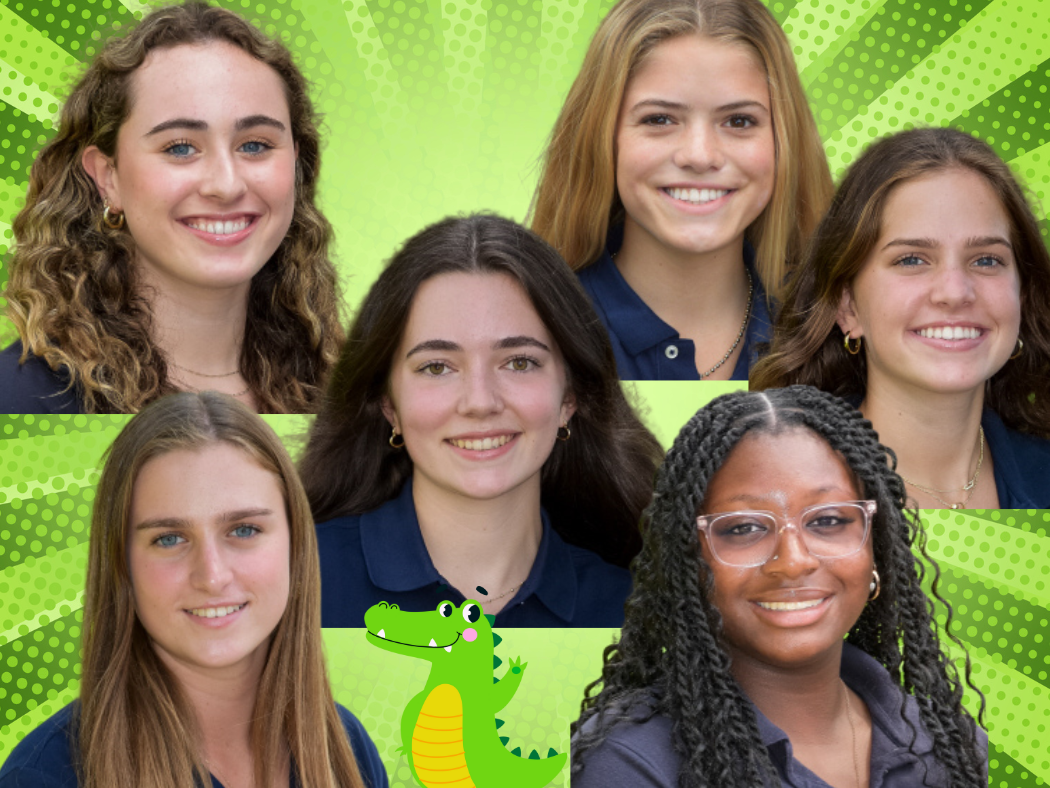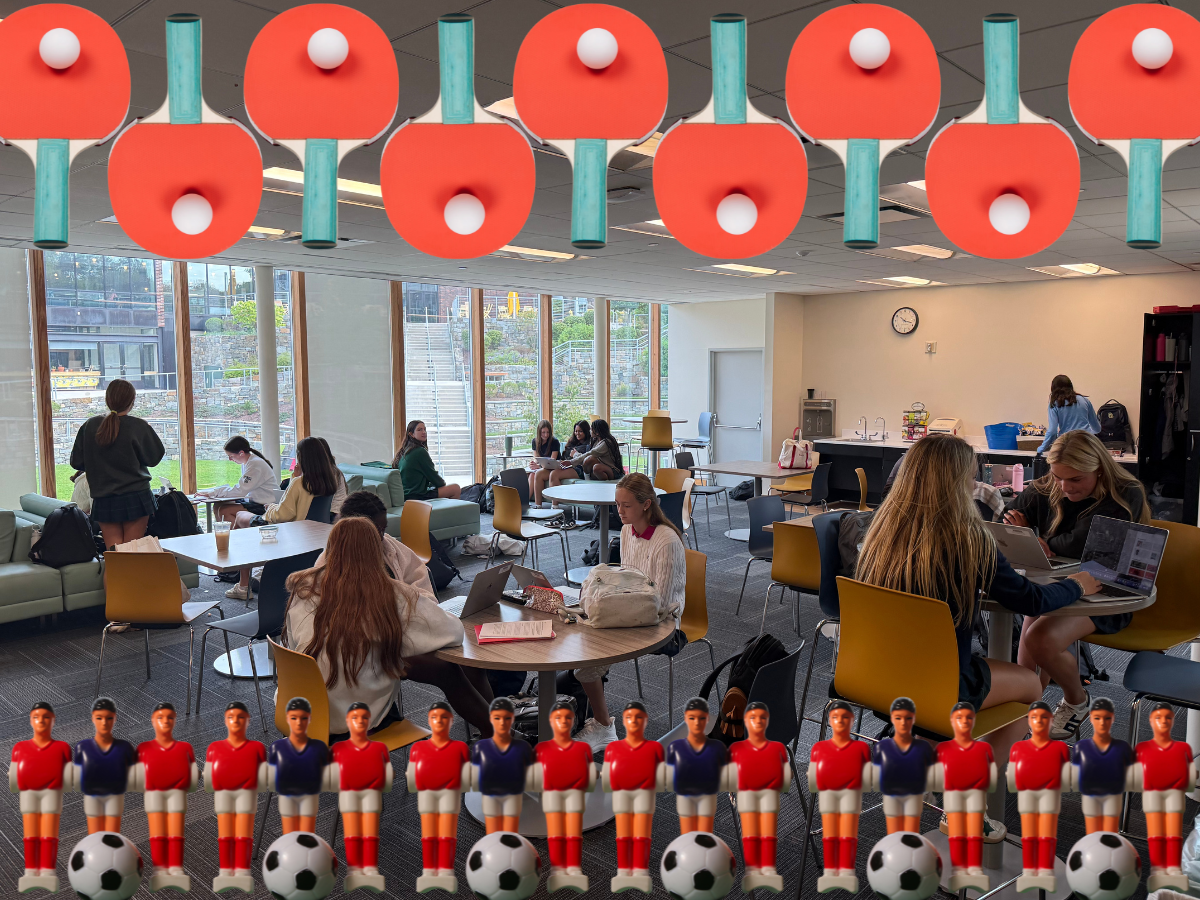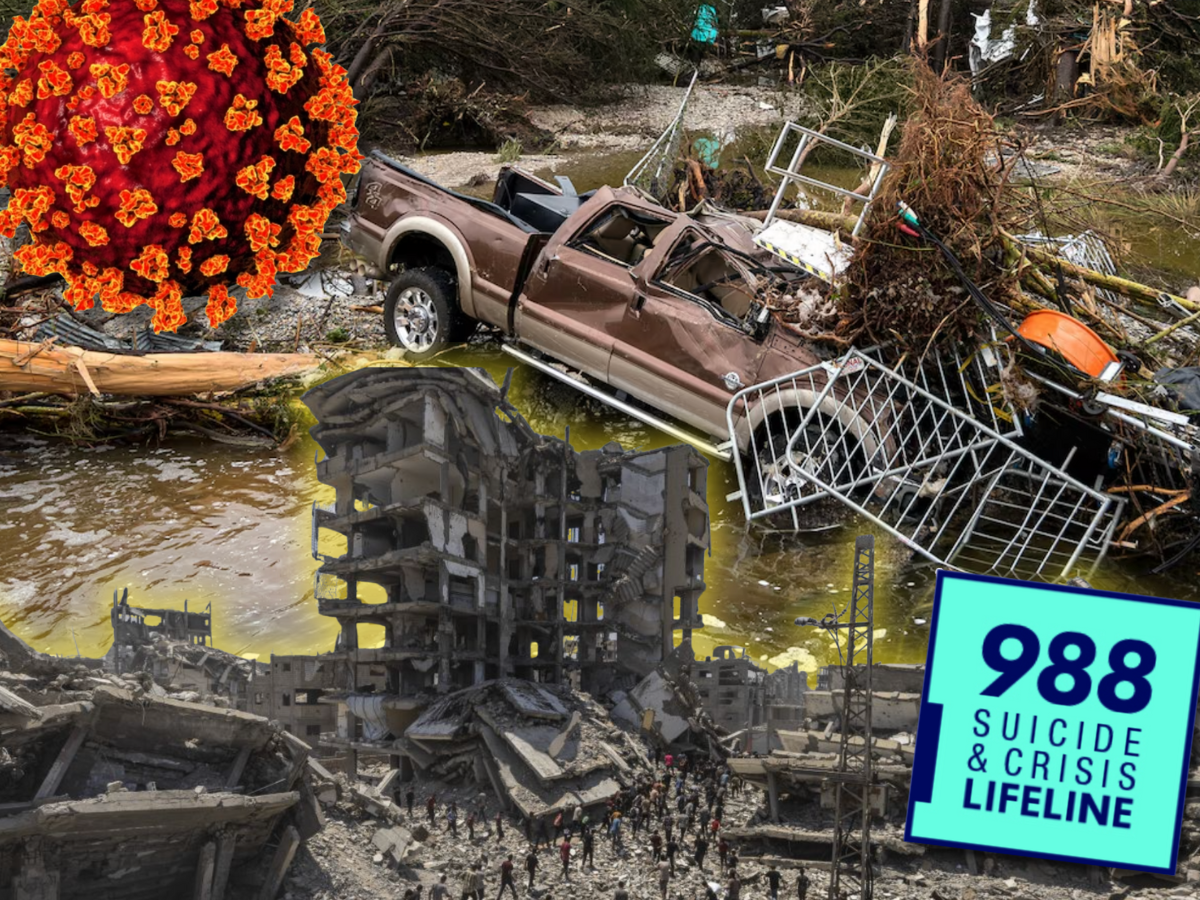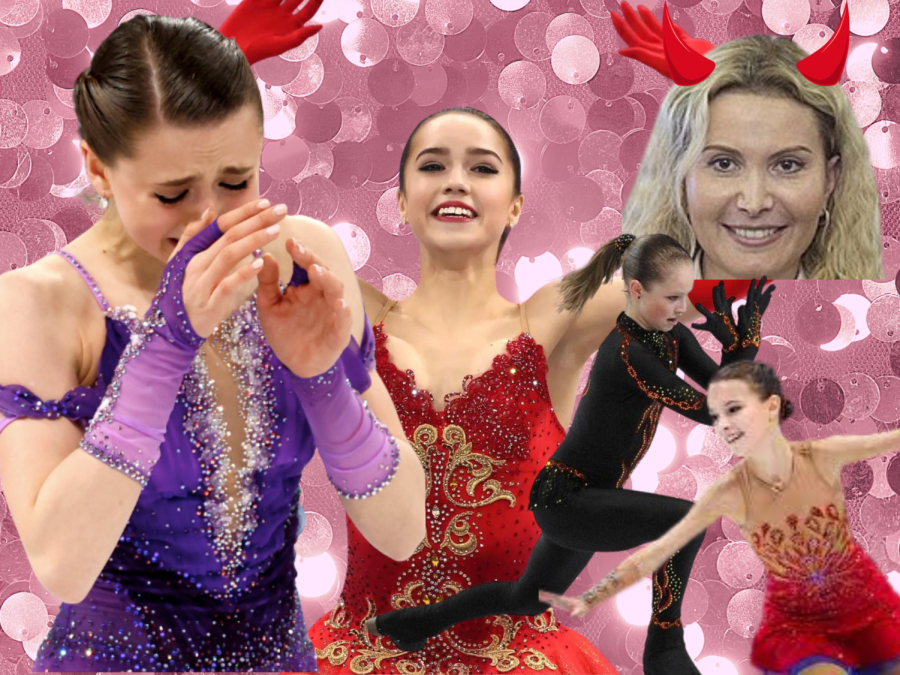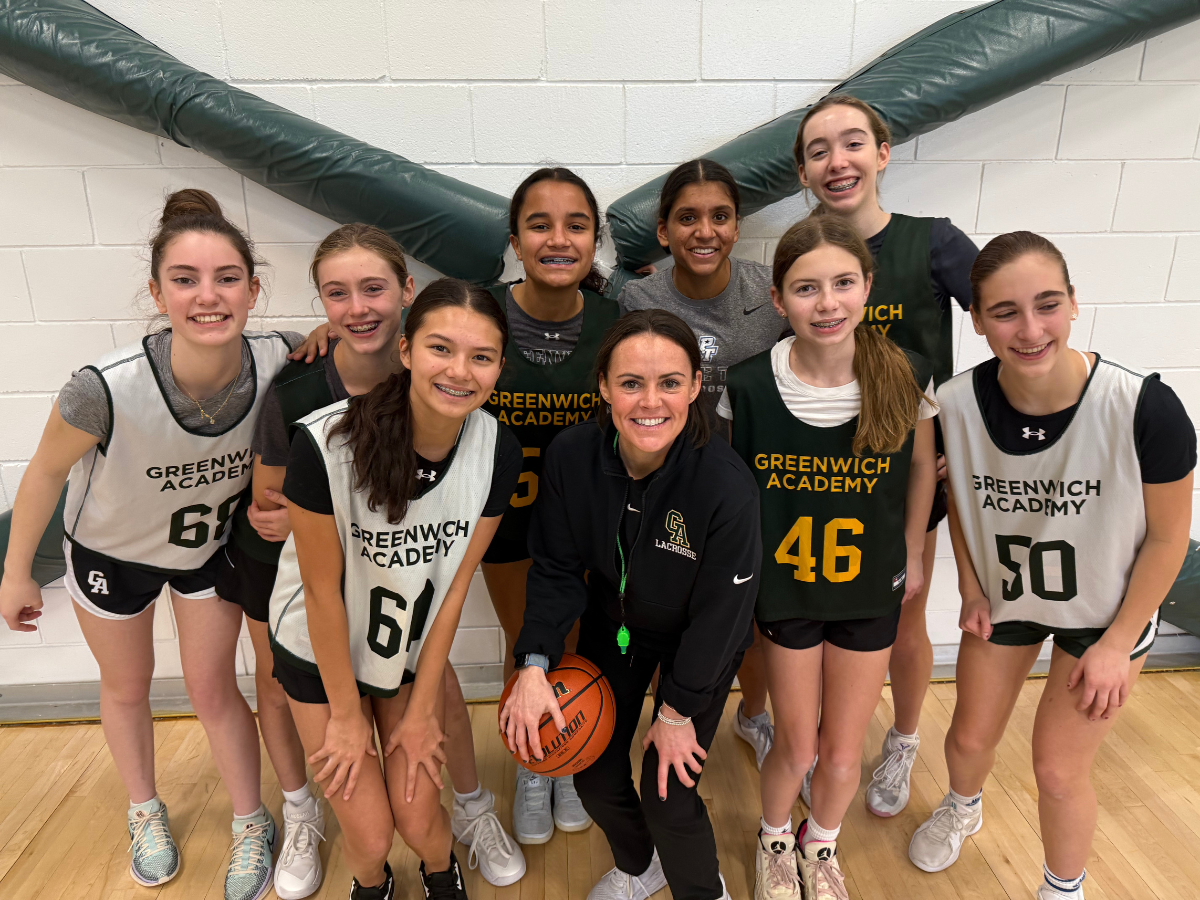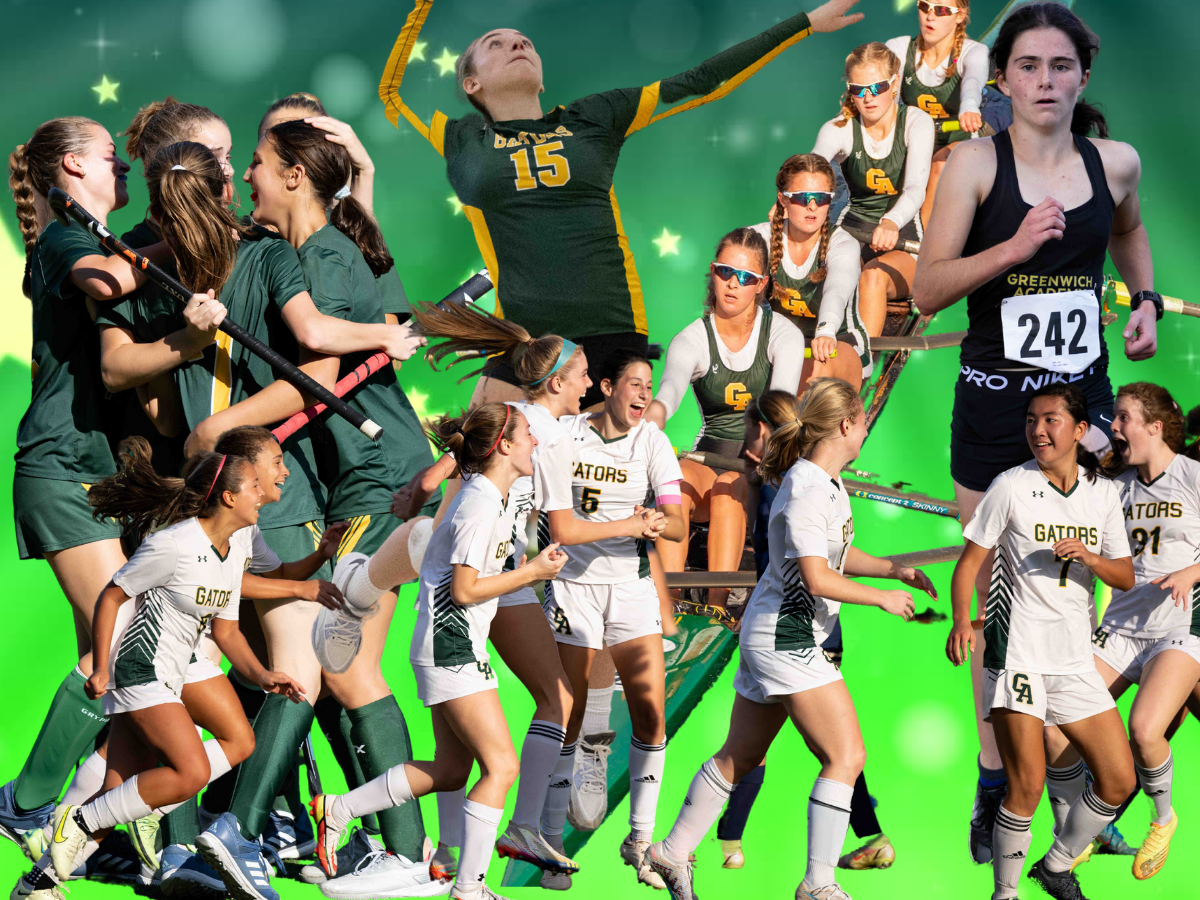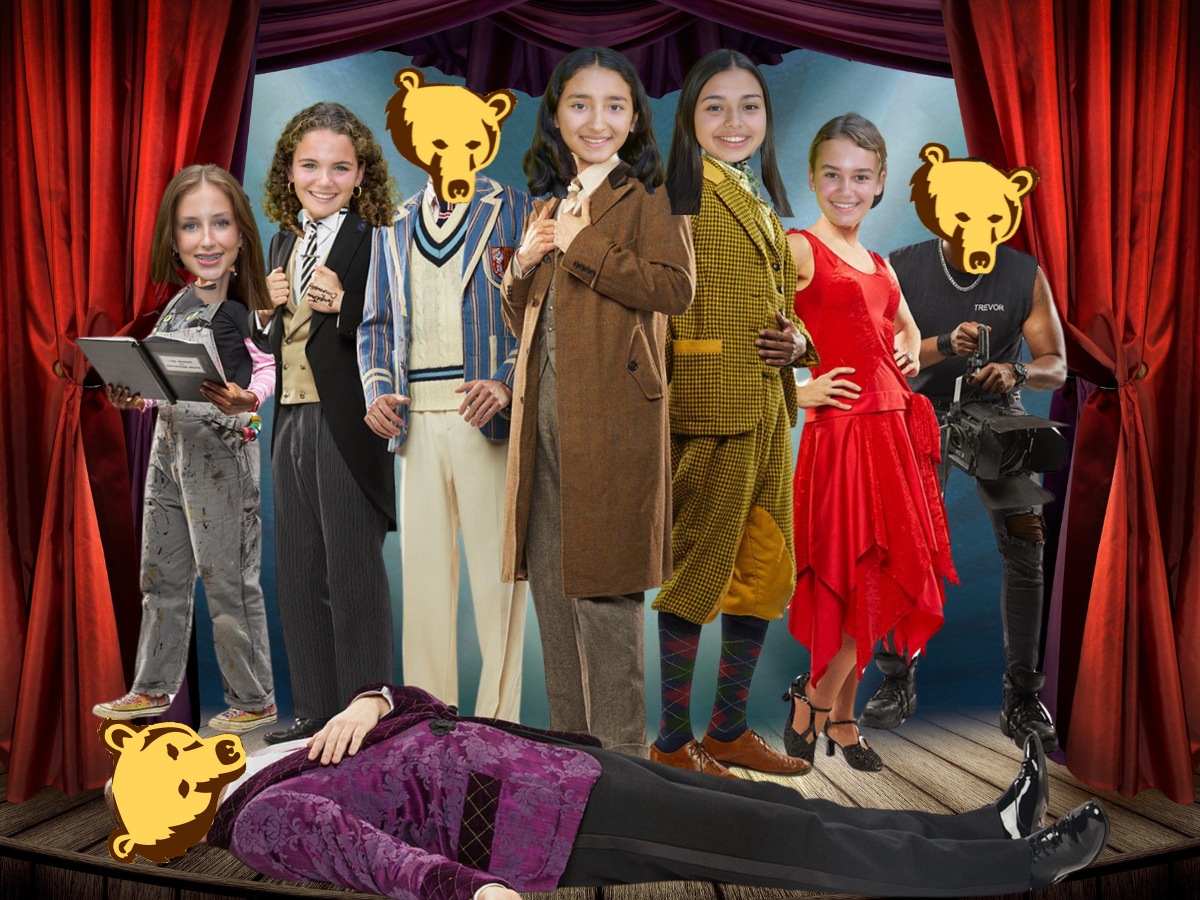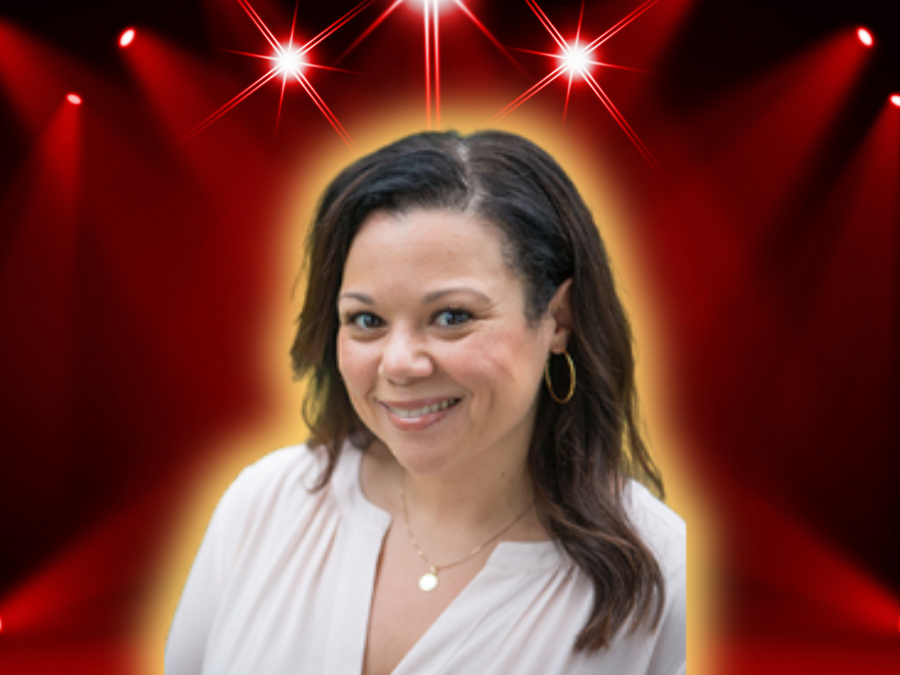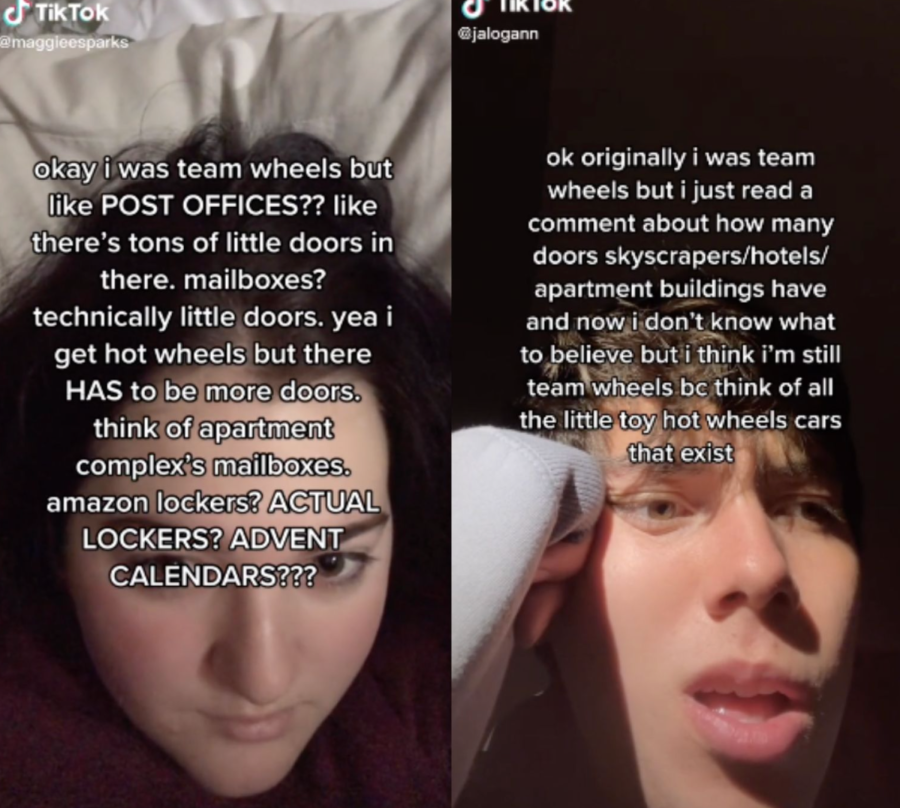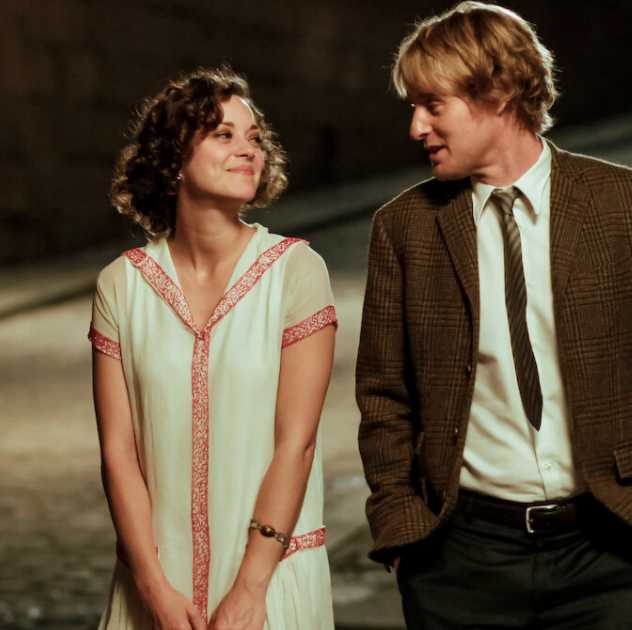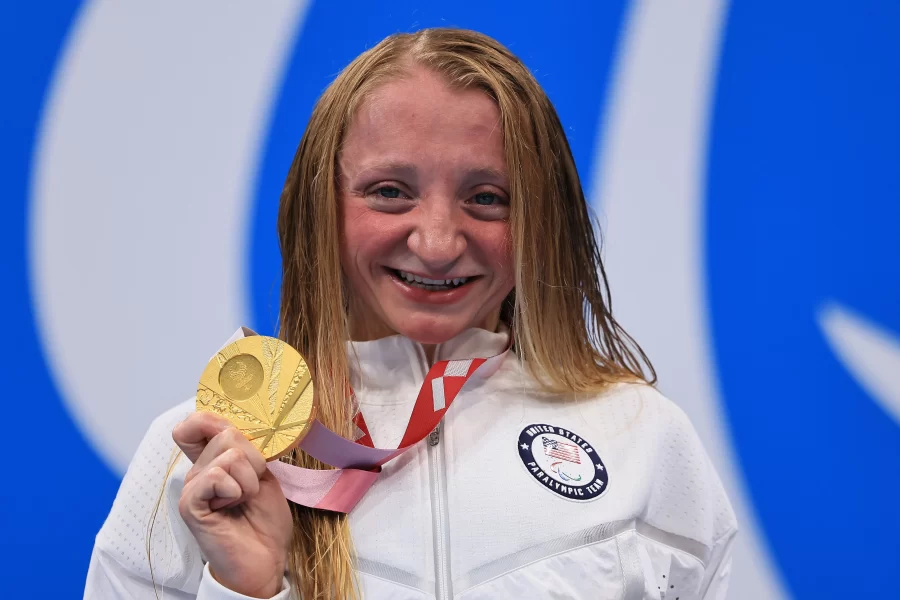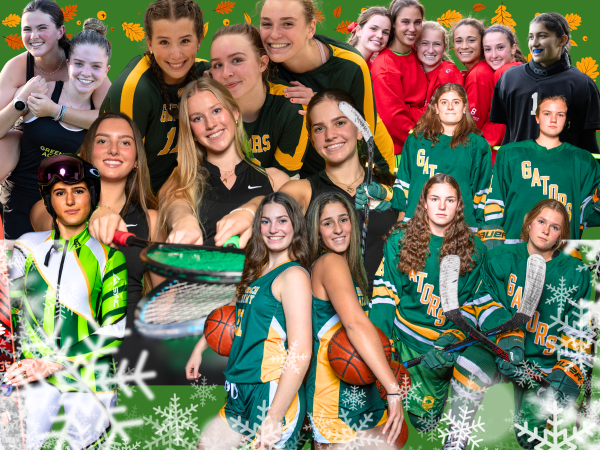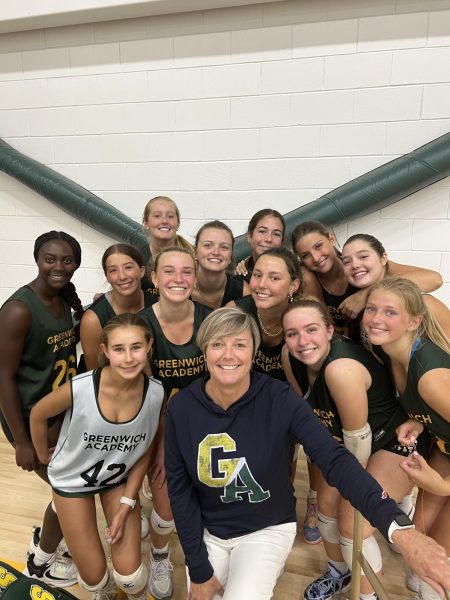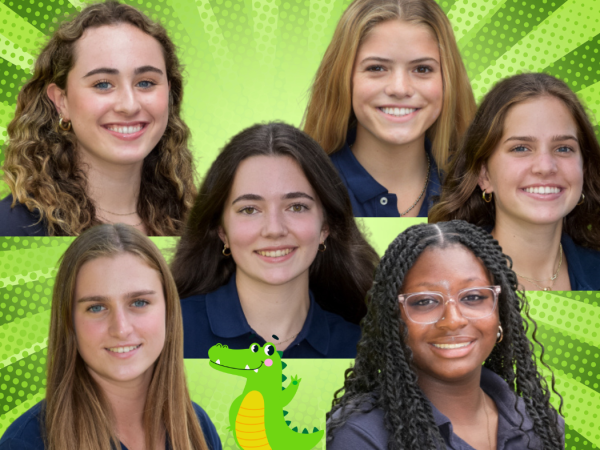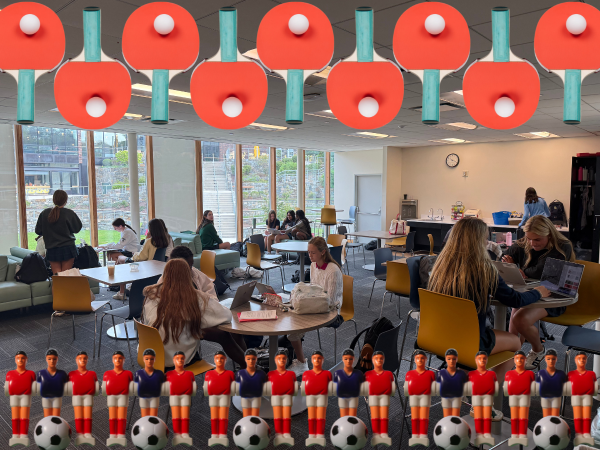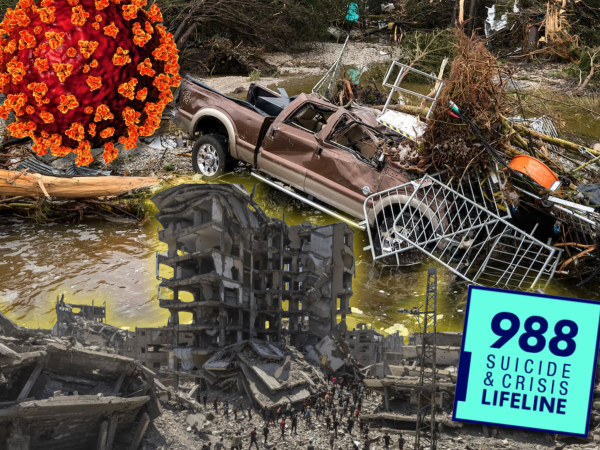Diving Deep: McKenzie Coan on Overcoming Struggle and Finding her “Why”
Paralympian McKenzie Coan’s Life Hacks Include Embracing Struggle & a Little Bit of Rihanna
This past month, GA was extremely lucky to hear from 25-year-old Paralympic swimmer McKenzie Coan. McKenzie spoke to the Upper School on March 3 and her infectious personality instantly engaged the audience. Her words deeply touched both students and teachers alike. McKenzie, diagnosed with a very rare disease called osteogenesis imperfecta (OI) which causes her bones to easily break, is impressive on all fronts. She is a stellar athlete, motivator, student, and family member. It’s no surprise, therefore, that GAP was interested in learning more about McKenzie. We sat down with her after her assembly to learn more about her advice for students, the book she recently wrote, and a few fun facts about her. Here’s what we talked about.
This interview has been edited for clarity and length.
Sara: To start off, we wanted to talk a bit about being a student athlete. A question that I think a lot of people were wondering about is if you have any tips or how do you manage training and going to school? I remember you said you’re pursuing a law degree right now. How do you manage that balance?
McKenzie Coan: I start in August for law school, but I think my time management skills and that balance, I really learned in my four years in undergrad at Loyola. I was on the Division I varsity team. Of course I had all my national team stuff going on. I remember there were times where I would be doing exams on planes proctored by the staff.
A lot of it just came down to planning and time management, but also there’s something extra that you have to have. That’s not the only thing that’s into it. You have to have a drive in everything you do. I’m academically motivated just as much as I am in the water. I’m the same person, I just apply myself in different ways. You have to keep your goals in mind, you have to be motivated.
I will say, disclaimer, it’s not easy and it’s not always fun. I’m sure you guys already know that from all of your commitments as well.
Something to keep in mind, it’s always worth it in the end, no matter if you’re trying to get through the semester to the final exam and finish it, or you’re going to a huge meet and you’re trying to win and get on the podium. Either way, it’s always worth it, but you have to keep your goals in mind. That’s the only way you make it through.
Sara: That’s an awesome point because I feel like oftentimes in sports and in school, it’s always you’re studying late night and you’re like, “What’s all of this for?” It can be exhausting.
Sarina: I guess, in order to be motivated, you always have to say, “What is the greater purpose? Why am I doing this? What am I fulfilling?”
McKenzie: I agree. That purpose, it leads you and it makes it worthwhile to stick through to the end even when it’s difficult because it’s definitely not easy.
Sarina: Also now that you’re out of undergraduate school, do you have more time to pursue your interests outside of school maybe in terms of activism?
McKenzie: I do. It’s been really refreshing. Obviously, I wasn’t expecting to have this long of a buffer or a break between undergrad and starting law school. COVID added an extra year on it, but it’s been nice to be able to have time away when I’m not in the water, I’m not training, or I’m not doing stuff with my agency.
I’m able to do outreach. I can volunteer. I volunteer to coach for a swim team that has disabled kids, an adaptive swim program in the area. I also have my own organization. It’s called Kenzie Cares and I get to visit hospitals and orthopedic offices with kids who are similar to me in what they’re going through. I think just the ability to reach people in the community, I feel selfish sometimes because I feel like I’ve gotten way more out of it than I’ve given because I’ve gotten the opportunity to meet such incredible people and families and try to help them in any way I can.
I think that’s just been really nice to be able to be out in the community. When I was at Loyola on our Division I team, we had things that we did every year like visiting a soup kitchen, or we had this program called Hounds to Hounds where we would teach younger kids how to swim. Past that, there wasn’t a lot of time for outreach in the community. I think that’s been the most rewarding part for me.
Sara: We also heard that you recently published a book! Why did you write it? What message did you want to broadcast to everyone who’s reading it?
McKenzie: Throughout my entire life, people have tried to dictate what I’m capable of. People used to tell my parents they were crazy for letting me be on the swim team. They were crazy for letting me go to school. What were they supposed to do? Lock me in a room and throw away the key?
People used to tell me all the time, “Are you sure you want to do this? You’re pretty fragile. You might get hurt,” and things like that. I really want everybody to understand that no matter what anybody else says, it’s based on you and what you want to do in your life and your work ethic and your dedication to it. There’s nothing that you can’t pursue. For me, there might be some adaptations, but I can still pursue it and go after my dreams.
Another thing that I really want people to realize, and I say this sometimes, but the things that occur in life either become things that happen to you or things that happen for you. I truly believe that life is a matter of perspective and you get what you give. I’m used to breaking bones all the time.
I could sit in a corner and I could weep about it every time that happens. It’s going to happen often. I can’t control that, but what I can control is how I’m reacting in the situation, how I adapt to move forward. I think that’s a message that really can resonate with anyone because we all go through things in life. Mine happens to be OI, but we all deal with things. Those are probably the two main things I hope people are able to take from my story.
Sarina: Can you tell me a little about your journey in realizing how to best deal with struggle?
McKenzie: Yes, absolutely. I actually think a lot of what I’ve learned and how I’ve learned to approach things and struggles, came from when I was younger, breaking bones at a really young age and having to learn that it’s okay to struggle. It’s not fun, but it’s okay to struggle and it’s okay to accept that, it is really important. I think some of the hardest fractures I’ve ever had in my life are the most painful, and trust me, I’ve broken everything, so I definitely know what’s the most painful.
A broken femur is the most painful thing I’ve ever experienced in my life. It’s also the thing that knocks you out the longest. Let’s put it this way, if I had a foot fracture or something, “Okay, tape it up. Give it some stability and keep going in the water.” It’s not a problem. Or a broken shoulder, “Okay, well, kick with a kickboard for a couple of days and then start using it again.” There were always things around that.
When it came to something really serious like a broken femur, I’d be out of the water for a week or two. When I got back in, you don’t just go right away with an injury like that. You have to just get used to being in water again. When you go up and you’re buoyant, it moves around a bit and you have to get used to the pain with that. I look back and I think that’s when I started learning how to be resilient.
Then as I got older and more into my swimming career, I would say it was Rio in 2016. When I came back and I was having some struggles in a mental sense and emotional sense where I was like, “What am I even doing?” I came back into college a month late into the semester. I had no idea what was going on. I was trying to get my head on track. I was trying to get on track with my classes. I was getting back into swimming. I didn’t take a break. I came back and I was having all these struggles and I had to reach out for help.
I started going to sports psychology, and that’s where I really started to learn that you can feel your emotions and you can accept them, but you don’t have to dwell on them. I think that’s where I started to get stronger and deal with things that didn’t even have anything to do with swimming. It was dealing with my own disability and the things that I would go through there.
I think it has made me a more well-rounded person, but I would say it took me a really long time. I was 20 years old when I came back from Rio in 2016. Up to this point now, I feel like I’ve really started to finally get a grasp on how to respond to things that are out of my control. It’s taken some time, but I’d say it’s worth it. Every struggle I’ve gone through has only made me stronger in the end in that sense.
Sara: I feel as if a lot of GA students can learn from your journey as a Paralympic swimmer. What advice would you give to young athletes who are feeling discouraged at the moment, having an off day, just not really feeling it?
McKenzie: I’m going to go back to what I touched on earlier, just because I think it’s so important. This is something I even wish I could tell my younger self because I was so hard on myself. I was very type A, very perfectionist growing up and I was just very, very hard on myself. I couldn’t have an off day. I’d literally go back and tell myself that it is literally okay to have an off day. It is not going to offset the rest of your career. Obviously, if it keeps happening over and over again, it’s a different story, but one day where you’re giving your all and it doesn’t quite click, it’s okay.
I would actually tell myself and I would tell them to think about why you started in the first place. It’s just like I tell myself now. I got in the water for a reason that is so much bigger than winning medals or breaking records. I got in it because I found my freedom there and I fell in love with it. That’s my “why.” I would ask them, “What’s your why?” Why do you love this? It’s good to keep that in mind every now and then because there’s definitely peaks and there’s definitely valleys in everything that we do.
It’s really, really awesome to ride the high and be like, “I’m on top of the world. Yes, I’m winning!” You also don’t want to lose perspective of why you started out on this. I would tell them, think back to why you started, what goals do you have in place? Why are you showing up every day and putting yourself through this?
Honestly, I think it’s also important to keep in mind that if you can’t answer those whys, then why are you coming in every single day? If you can’t answer that, then maybe you need to think about, “Okay, is this really what I love doing?” If it’s not—this is so cliche but I’m just going to say it. If it’s not sparking joy in your life, maybe it’s time to reevaluate and find what does.
You only get one life, so you really don’t want to spend it doing something that’s not making you happy. I’d also tell them, it’s not about anyone else. Your parents can’t wave a magic wand and make all your problems go away and do it for you. No-one’s going to do that. It has to come from you, the will to keep going when things get tough.
Sarina: What advice do you have for those who haven’t found their passion yet?
McKenzie: Oh my gosh. Honestly, I cannot describe what I feel in the water. It’s so crazy because I was so young when I started on the swim team after aqua therapy. I can close my eyes and I can see that day so clearly, when I got in the water with all the other kids and I just felt on top of the world. I feel like I think about it and I still have a smile on my face. I think about that feeling that I have, and it scares me a lot to think that someone else could never have that feeling in their lives.
I would 100% tell them to keep searching and keep finding it because it’s honestly the greatest joy in the entire world. It’s something that nobody else, not my OI, not anybody who doubts me will ever be able to take away from me. I would describe finding your passion is your greatest freedom, the thing that you will always have and always be able to protect. I can’t stop smiling. Keep searching. It’s out there. I would not stop until you find it because I know how it feels. It’s amazing.
Sara: Awesome. Now for the fun questions! How do you get yourself in the zone when you’re competing? Do you have any hype up song recs?
McKenzie: I love this question. I feel like you’ll always meet two different types of swimmers: the swimmers that love music before they race and the swimmers that don’t. I am one that loves music. I have to have music on. When we’re at big meets, we go to the call room, which is the final staging area before you swim. In the call room, you’ll probably spend like half an hour there. You’ll go through two or three different rooms, so you’ll just sit there with all your competitors and you’ll get ready to get out and do the thing.
I have to have my earphones in. I always bring an extra pair in there with me. I like any music that is really upbeat and fun. Then I like some aggressive stuff too, but I have to have that to get into my zone. It’s really funny, people tell me that I’m such a happy upbeat person, but when it’s race time, when I get into my own little world and I have my music going, I feel like I’ve become a different person.
I also can’t sit still. I’ll just start jumping around. I feel like I’m twirling in my chair right now because I’m getting excited and I’m thinking about being in the call room. For me, music. Let me tell you, a little bit of Britney Spears, throw some Rihanna in there and probably some Nicki Minaj, and I’m good to go. [laughs]
Sarina: Have you ever Googled yourself?
McKenzie: No. Actually, full-on, I have never Googled myself. This is funny too, I won’t watch my swims back because it makes me nervous. The only swim I’ve ever seen from the Games is my 50-meter freestyle from Rio. They played it at an event. I didn’t know they were going to put it on the screen.
I also don’t rewatch my training tapes. It’s funny because sports psych has tried to talk sense into me a few times. They’re like, “Why don’t you? You know the outcome, you know this, you know that.” I’m like, “No.” The anxiety gets to me because I’m going to take that into the next race and am going to be nitpicking every single thing I do. I told them this. I told them, “I promise you I will look at it one day,” and then I mouthed, “Once I retire.”
Sara: Are you superstitious?
McKenzie: I have a superstition. I do not look in the stands before I swim but on the other side of that, I always look for my family as soon as I hit the wall. Whether good or bad outcome, I always look for my family. I need them at that moment. During the Tokyo Games and Covid, I got choked up because I looked into the stands, I guess I’d forgotten for a minute, and I looked for them and they weren’t there. That’s when it hit me but my mom told me, “If and when that happens, just look into the camera because we’re right there.” It’s so emotional.
Sarina: Did you look in the camera?
McKenzie: I did.
Sarina: Did they see you?
McKenzie: Honestly, I waved, and then I got out of the water and I went over to the NBC interviews and they actually had them on Zoom live and it was a 10-second delay or something, but I got to see them and that’s when I was like, “Oh my God, here we go.” It was a really nice thing that they did, to be able to see them, and knowing that they were right there, even if they weren’t physically. It did hit hard, looking, it’s just second nature.
You go up and you look in the stands, you’re like, “Oh wait a minute, it’s not like it is.” That was hard. Then on the podium, it got me choked up a bit just thinking about how I can’t quite share that moment like I did with them in Rio, it was very different. I wasn’t going to get those five minutes with them because that’s what you get. You get five minutes with your family when you come off the podium with a medal in the stands with a security guard and another staff member. I wasn’t going to have that this time.
Sara: Well, thank you so much for speaking with us today! We really appreciate you taking a part of your day to talk about your life and give advice to students like us.
Sarina: GA will be cheering you on in 2024!
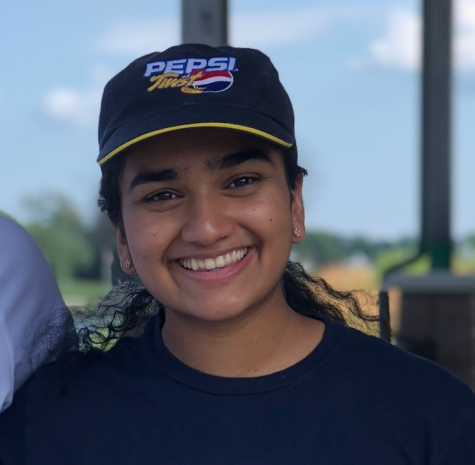
When not writing or editing for GAP, Sara loves to bake with Chef's Table, the Great British Baking Show, or music playing in the background. She also...

When not writing or editing for GAP, Sarina is watching figure skating re-runs, testing daunting recipes, or playing with her dog, Milo. She also loves...
